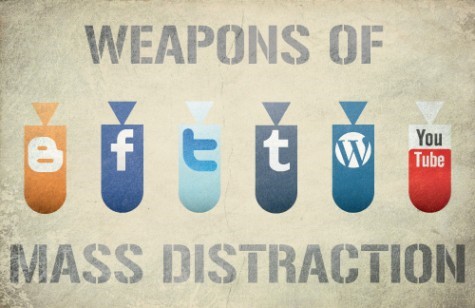Don't make up excuses
When we hear about habits and daily routines, we sometimes imagine going through our rituals with a quiet mind and completely focused on the task at hand, going through our schedule mostly as we planned. I bet few people have such a privilege.
I sometimes struggle to find quiet or at least continuous time to write. Writing is important for me, but it’s not the only thing I do. Even if I wake up early in the morning, some days the kids wake up early too. Or they have school vacations. Other times, even if I block out chunks of time in my calendar, sometimes interruptions are inevitable.
This can be frustrating. But instead of conceding to frustration and complaining, I like to remember a series of quotes from science fiction author, technology activist, and journalist Cory Doctorow.
From Finding Comfort in the Chaos:
I became a professional writer at the same time as I was co-founding a dotcom startup, and I learned to write crammed into coach seats with my laptop keyboard practically vertical, my wrists bent back at an agonizing angle. Between flights, I’d write crouched on the floor under the water fountain between the toilets in the departure lounge, nailing the only outlet and plugging in my travel power strip to share with others. (Always. Be. Charging.)
When I left the startup to be a full-time activist and then the European Director of the Electronic Frontier Foundation, my writing time got even more fraught: 31 countries in 36 months, 27 travel days per month. I spent so little time at home that I stopped plugging in my fridge, because it wasn’t worth spending $10/month to keep my ice cubes frozen. I started writing on subways, on escalators leading out of subways, in cafes, on the street with my laptop balanced on a newspaper box (the very last useful purpose those sturdy, reliable pieces of street-furniture ever served).
From Writing in the Age of Distraction:
When I’m working on a story or novel, I set a modest daily goal — usually a page or two — and then I meet it every day, doing nothing else while I’m working on it. It’s not plausible or desirable to try to get the world to go away for hours at a time, but it’s entirely possible to make it all shut up for 20 minutes. Writing a page every day gets me more than a novel per year—do the math—and there’s always 20 minutes to be found in a day, no matter what else is going on. Twenty minutes is a short enough interval that it can be claimed from a sleep or meal-break (though this shouldn’t become a habit). The secret is to do it every day, weekends included, to keep the momentum going, and to allow your thoughts to wander to your next day’s page between sessions. Try to find one or two vivid sensory details to work into the next page, or a bon mot, so that you’ve already got some material when you sit down at the keyboard.
(…)
Forget advice about finding the right atmosphere to coax your muse into the room. Forget candles, music, silence, a good chair, a cigarette, or putting the kids to sleep. It’s nice to have all your physical needs met before you write, but if you convince yourself that you can only write in a perfect world, you compound the problem of finding 20 free minutes with the problem of finding the right environment at the same time. When the time is available, just put fingers to keyboard and write. You can put up with noise/silence/kids/discomfort/hunger for 20 minutes.
On writing and raising kids, in Inside the Mind of Cory Doctorow:
One thing fatherhood does is it forces you to be a lot more diligent about how you organize your time. So I’m a lot less apt to take on stuff that is of low value. For example, if I’m going to relax these days, I’ll never turn on the TV. The books I’m not reading are always more interesting than the shows I’m not watching. When you start to think of your time as packing a knapsack for an adventure in the woods—not wanting to overpack and not wanting to leave anything out, either—and really treat it as a survival kit, you start to get to what matters.
Showing up is not about doing something in an ideal context. It’s about doing every day what you set up to do, regarding of unexpected circumstances or distractions.
Featured image: “Distractions” by Emily boston is licensed under CC BY-SA 4.0
